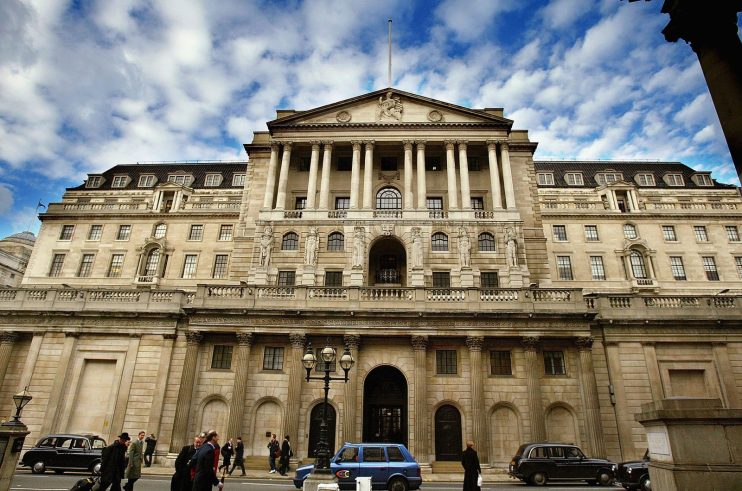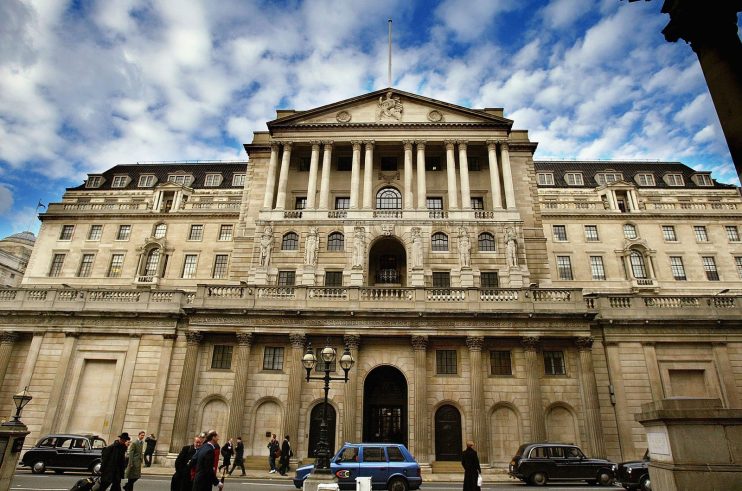Bank bigwig warns of potential for “massive” crypto crash

A BANK of England grandee has called for cryptocurrencies to be regulated as a “matter of urgency,” warning that a “massive” market crash is a realistic scenario.
Sir Jon Cunliffe, the Bank’s deputy governor for financial stability, said that crypto volatility poses a rapidly growing threat to the world economy. A crash would have the potential to send shockwaves across global financial markets, Cunliffe warned, as he underscored the need for increased oversight.
“Regulators internationally and in many jurisdictions have begun the work,” said Cunliffe. “It needs to be pursued as a matter of urgency.”
“A massive collapse in cryptoasset prices, similar to what we have seen in tech stocks and sub-prime, is certainly a plausible scenario,” Cunliffe added, explaining that the “bulk of these assets have no intrinsic value and are vulnerable to major price corrections.”
The size of the global crypto market has swelled by almost 200 per cent in 2021, rising from $800bn (£586bn) to stand above $2.3 trillion today.
While crypto markets make up a tiny proportion of the $250 trillion global financial system, Cunliffe pointed out that the 2008 financial crash was triggered by the collapse of the much-smaller $1.2 trillion sub prime market.
Cunliffe’s comments come as the IMF raised alarm bells about the threat posed to the global economy by crypto assets in its latest Financial Stability Report.
The IMF cautioned that while the risks posed by crypto are “not yet systemic” the situation should be “closely monitored” by governments which still use “inadequate operational and regulatory frameworks” to manage digital assets.
Adding to the Bank of England’s sense of urgency, the report warned that growing crypto adoption could weaken the role of central bank money, facilitate tax evasion and destabilise capital flows.
Coinbase, the New York listed cryptocurrency exchange told City A.M. that regulatory scrutiny would increase trust in digital assets.
“Crypto and the blockchain technology that underpins it have tremendous promise to revolutionise financial services and drive innovation,” he continued, stressing that education and regulation are the best way to harness the potential of digital assets.
Read more: Exclusive: UK fintech Mode to offer THG’s 31m customers cashback in crypto
Bank bigwig warns of potential for ‘massive’ crypto crash

A BANK of England grandee has called for cryptocurrencies to be regulated as a “matter of urgency”, warning that a massive market crash is a realistic scenario.
Sir Jon Cunliffe, the Bank’s deputy governor for financial stability, said that crypto volatility poses a rapidly growing threat to the world economy. A crash would have the potential to send shockwaves across global financial markets, Cunliffe warned, as he underscored the need for increased oversight.
“Regulators internationally and in many jurisdictions have begun the work,” said Cunliffe. “It needs to be pursued as a matter of urgency.”
“A massive collapse in cryptoasset prices, similar to what we have seen in tech stocks and sub-prime, is certainly a plausible scenario,” Cunliffe added, explaining that the “bulk of these assets have no intrinsic value and are vulnerable to major price corrections”.
The size of the global crypto market has swelled by almost 200 per cent in 2021, rising from $800bn (£586bn) to stand above $2.3 trillion today.
While crypto markets make up a tiny proportion of the $250 trillion global financial system, Cunliffe pointed out that the 2008 financial crash was triggered by the collapse of the much-smaller $1.2 trillion sub prime market.
Cunliffe’s comments come as the IMF raised alarm bells about the threat posed to the global economy by crypto assets in its latest Financial Stability Report.
The IMF cautioned that while the risks posed by crypto are “not yet systemic” the situation should be “closely monitored” by governments which still use “inadequate operational and regulatory frameworks” to manage digital assets.
Adding to the Bank of England’s sense of urgency, the report warned that growing crypto adoption could weaken the role of central bank money, facilitate tax evasion and destabilise capital flows.
Coinbase – the Nasdaq-listed cryptocurrency exchange – told City AM that regulatory scrutiny would increase trust in digital assets.
“We welcome the increased focus on the crypto sector from governments and regulators, which is long overdue,” said Marcus Hughes, managing director of Coinbase Europe.
“Crypto and the blockchain technology that underpins it have tremendous promise to revolutionise financial services and drive innovation. But by not having clear regulation or even a pathway to regulatory clarity, we’re sending this innovation out of the UK and we run the risk of it never coming back.
“We have long held the view that building trust in the crypto ecosystem through education and appropriate regulation is the best way to harness its huge potential.”
READ MORE: Exclusive: UK fintech Mode to offer THG’s 31m customers cashback in crypto
Bank bigwig warns of potential for ‘massive’ crypto crash

A BANK of England grandee has called for cryptocurrencies to be regulated as a “matter of urgency”, warning that a massive market crash is a realistic scenario.
Sir Jon Cunliffe, the Bank’s deputy governor for financial stability, said that crypto volatility poses a rapidly growing threat to the world economy. A crash would have the potential to send shockwaves across global financial markets, Cunliffe warned, as he underscored the need for increased oversight.
“Regulators internationally and in many jurisdictions have begun the work,” said Cunliffe. “It needs to be pursued as a matter of urgency.”
“A massive collapse in cryptoasset prices, similar to what we have seen in tech stocks and sub-prime, is certainly a plausible scenario,” Cunliffe added, explaining that the “bulk of these assets have no intrinsic value and are vulnerable to major price corrections”.
The size of the global crypto market has swelled by almost 200 per cent in 2021, rising from $800bn (£586bn) to stand above $2.3 trillion today.
While crypto markets make up a tiny proportion of the $250 trillion global financial system, Cunliffe pointed out that the 2008 financial crash was triggered by the collapse of the much-smaller $1.2 trillion sub prime market.
Cunliffe’s comments come as the IMF raised alarm bells about the threat posed to the global economy by crypto assets in its latest Financial Stability Report.
The IMF cautioned that while the risks posed by crypto are “not yet systemic” the situation should be “closely monitored” by governments which still use “inadequate operational and regulatory frameworks” to manage digital assets.
Adding to the Bank of England’s sense of urgency, the report warned that growing crypto adoption could weaken the role of central bank money, facilitate tax evasion and destabilise capital flows.
Coinbase – the Nasdaq-listed cryptocurrency exchange – told City AM that regulatory scrutiny would increase trust in digital assets.
“We welcome the increased focus on the crypto sector from governments and regulators, which is long overdue,” said Marcus Hughes, managing director of Coinbase Europe.
“Crypto and the blockchain technology that underpins it have tremendous promise to revolutionise financial services and drive innovation. But by not having clear regulation or even a pathway to regulatory clarity, we’re sending this innovation out of the UK and we run the risk of it never coming back.
“We have long held the view that building trust in the crypto ecosystem through education and appropriate regulation is the best way to harness its huge potential.”